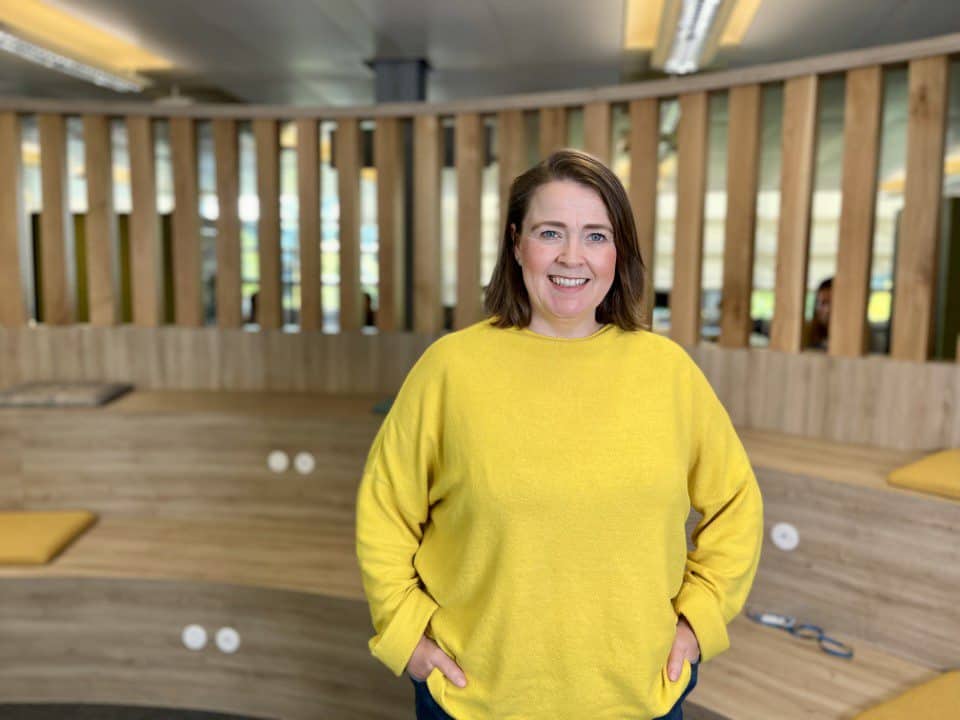We interviewed Kelly Richards, Business Analyst at DWP Digital on her experience and thoughts on women in tech.

-
What does your job involve?
My job as a business analyst, in its simplest form, is to find out what the business needs and why, then translating that into requirements for the development team to work from. That’s involves knowing how the business works, identifying areas of improvement, and analysing the impacts of change as well as working alongside dev and test to ensure what is being built meets business needs.
It’s also about building relationships, stakeholder engagement and good old fashioned communication and listening skills. I’m involved right across a piece of work from inception with business teams, through the development stage and test, right through release into production.
-
What made you choose a career in technology?
I didn’t really choose a career in technology, it kind of chose me. I was always passionate about working in the public sector, giving customers and claimants the best experience I possibly could when interacting with them and improving business processes to enable that.
I was seeking a challenge away from my existing operational area within DWP. I applied for a short term placement within DWP Digital to help with implementation activities and I never left.
Being passionate about customer experience starts with the customer first, then the next level is looking at processes and procedures, then the technology that delivers that. I guess I had done the first two steps in previous roles, so the next obvious thing was for me to look at the technology aspect.
-
Did you study an IT or technology related subject at A-Level or University?
No, I didn’t. I’ve always been a humanities girl, favouring English and History academically. Although, I did have lots of encouragement from my teachers at school to look at STEM related subjects for A level and university. They obviously knew how under represented that sector was for females and that it would open doors to a great career pathway.
I would say the skills I learnt as a humanities graduate underpin the way I work as a business analyst now. Skills such as prioritisation, communication, having the ability to look at things from all angles and provide fair and balanced reasoning. You don’t need IT or tech qualifications at any level to work in the sector, there are more roles available that utilise those transferable skills than you think.
-
Did you get any work experience in IT or technology before this role?
If you count my initial short term placement on a digital project before I actually secured my business analyst role, then yes. But aside from that, I’ve never worked in an IT or technology related role before.
-
Do you think there is a lack of females in the IT and tech sector?
That’s a great question. I look around me every day at work in DWP Digital and I see women achieving great things in their careers as DevOps engineers, software engineers, QA testers, delivery managers and business analysts. I’ve led 3 amigo meetings (an agile way of working to examine the work before, during, and after development) with all-female attendance from all disciplines. My director is female, and I feel privileged to be working with so many strong women. However, when you crunch the numbers, females are probably under represented.
-
Do you find there is a stereotype that a career in IT or technology is just for men?
Yes, in society that stereotype is probably live and kicking, although I’ve never experienced or witnessed any gender bias in my role or team.
It’s interesting. I do find myself thinking when I’m dealing with a female architect, DevOps, or engineer, ah wow a female *insert job role here*. Why do I think this? Is this because females are underrepresented in this sector or am I falling foul to my own unconscious bias and thinking these are traditionally male roles?
Society tells us that females are more nurturing than males, and males are more analytical than females which feeds into the stereotype that technology is just for men.
-
What would entice more women to study technology related courses?
The link back to the the value that technology can bring to people’s lives, the improvements and greatness it achieves. Sometimes I feel a lot of focus is on the tech itself and not the outcomes.
I think there is a stereotype of someone who works in tech as being glued to their screens and having very little human interaction. If that myth was debunked, and women saw the richness in the conversations, and they saw that tech was ultimately about people then this would make more women think about this as a career.
These days I would say tech unpins most other sectors such as research, medicine, engineering, retail, transport, government, and public service. Not everything in the technology sector is about making someone lots of money or sitting behind a screen.
-
Are there barriers when it comes to women getting into tech?
Yes, I would say there are barriers, and those come in different forms. Sometimes I think the biggest barrier to women getting into tech would be the overall mindset of the women. Studies show that men apply for a job when they meet only 60% of the qualifications, but women apply only if they meet 100% of them. This isn’t about women not believing in themselves. It’s about them thinking they need all the qualifications listed just be considered for the role. there something that recruiters can do to address this, maybe more emphasis on transferable skills rather than qualifications.
There are barriers too in terms of that societal expectation of what females are and can do. This to a large extent is still prevalent in the way we, as society, parent and raise girls.
-
How could we encourage more women to start a career in tech?
More exposure to female role models in this sector would be great.
Schools need to be exposing kids to coding at primary level and offering computer science at GCSE level, all the better if delivered by a female teacher. My son has a female tech teacher at secondary level which is great.
Female mentoring schemes ran in schools, outreach programmes with female leads, more representation in the media of females in technology.
-
What advice would you give young women today at the start of their career?
Believe in yourself and great things will happen.






